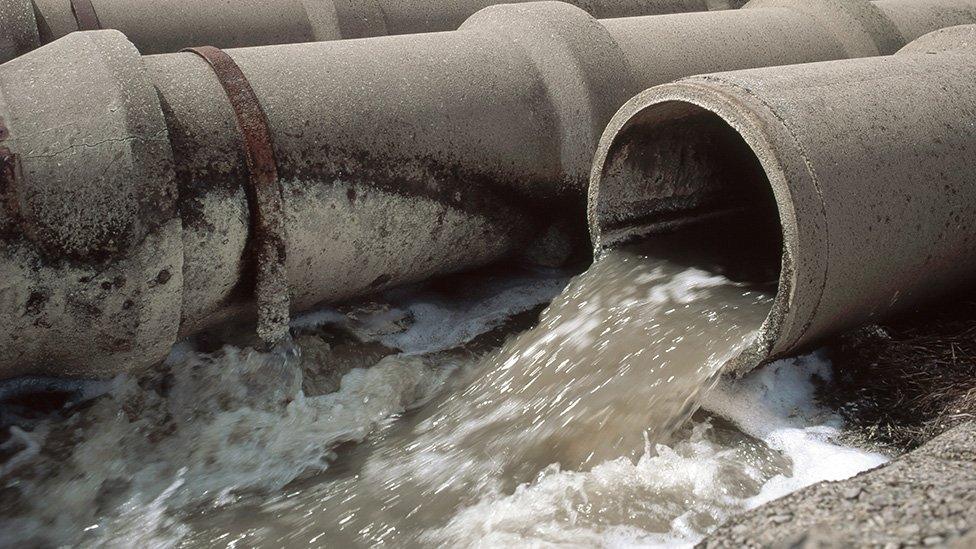River E. coli warning as man gets ill after rowing
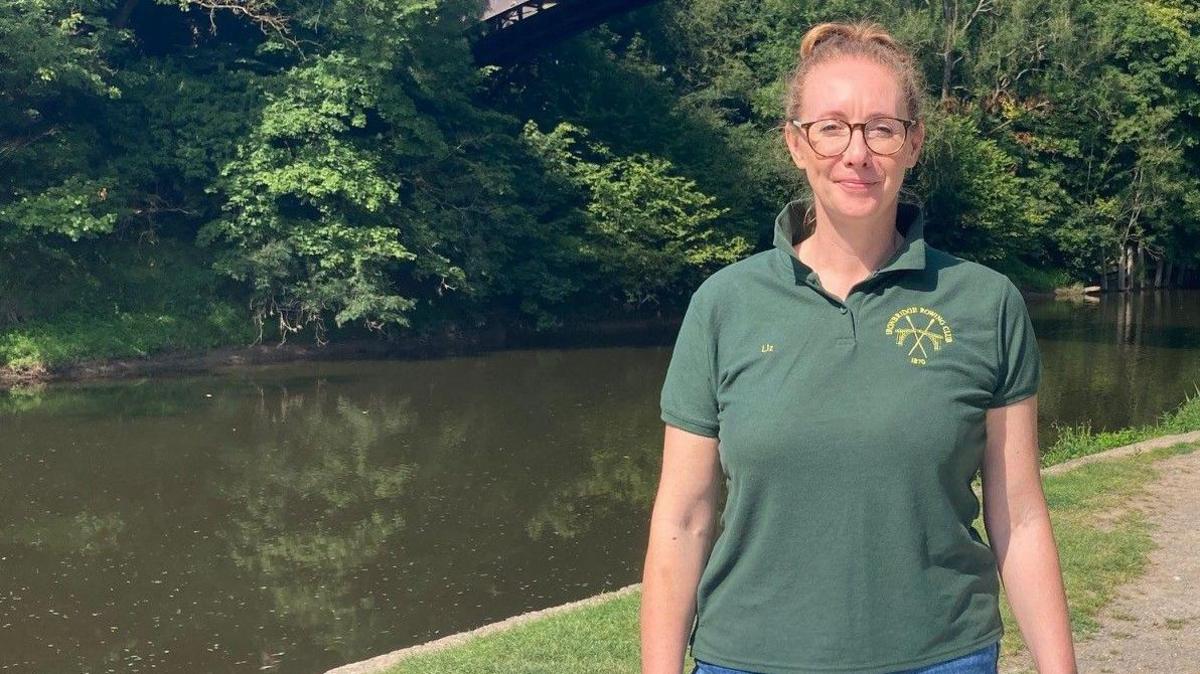
Liz Young's son became ill after rowing training on the River Severn in Ironbridge
- Published
A rowing club is advising river users to get tested for E. coli if they become ill after being on the River Severn.
Liz Young, a junior coach with the Ironbridge Rowing Club, said her son Broden, 18, started vomiting on 22 July following a training session the previous day.
She believes contaminated water may have splashed in his mouth or on his water bottle.
The Environment Agency said it monitored water quality at Ironbridge during the summer months, "giving bathers information to make informed decisions".
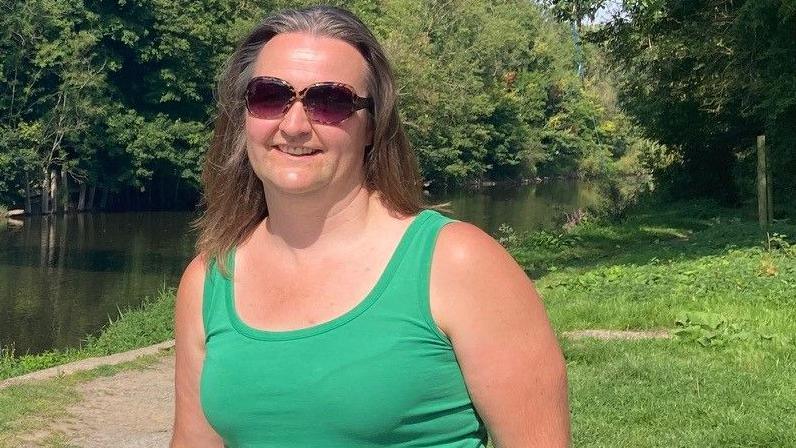
Ironbridge Rowing Club captain Sarah Staniforth has advised river users who feel ill to get tested for E. coli
Ms Young said Broden was sick every half hour for six hours, had a high temperature and his vomit contained blood.
She took him to see a GP, who prescribed antibiotics for waterborne bacteria.
But, 10 days later he remains unwell. "He's still not eating normally," she said.
The Ironbridge stretch of water where Broden and other members of the junior rowing team were training was added to Defra's list of designated bathing sites in May.
Environment Agency website, Swimfo, shows on 16 July, the E. coli level in the water there was 2,000 colony forming units (cfus), external per 100ml.
Levels in excess of 900 cfus are considered poor, external, meaning local councils must display warning signs "in the following year".
The Ironbridge stretch of water where Broden and other members of the junior rowing team were training was added to Defra's list of designated bathing sites in May.
Ms Young wants clarity on what the data means and whether it needs to be discussed with other water users.
Meanwhile, club captain Sarah Staniforth said a fisherman had also become ill recently and she wanted people to test for E. coli if they felt unwell after being in the river.
Ms Staniforth told the BBC she remembered the water being clear, with fish easily seen when she was a child.
Now, she said hot water and soap was provided for handwashing as soon as rowers emerged.
"Kids think the brown water in the Unesco World Heritage Site is the norm," she said.
The Environment Agency said it would "investigate the sources of bacteria throughout the season and work with stakeholders to gain a better understanding of the catchment and where improvements can be made."
It added E. coli was a naturally occurring bacterium, which could enter rivers from animals, surface run-off or sewage treatment works.
Severn Trent Water told the BBC it launched a £450m spills reduction programme in May.
The company aimed "to see spills from active storm overflows reduced by 20% by the end of the year," a statement said.
"We're working across 900 locations, including Shropshire, and already we're making great progress through a series of different solutions and interventions to reduce spills," it added.
Follow BBC Shropshire on Facebook, external, X, external and Instagram, external. Send your story ideas to: newsonline.westmidlands@bbc.co.uk, external
Related topics
- Published21 May 2024
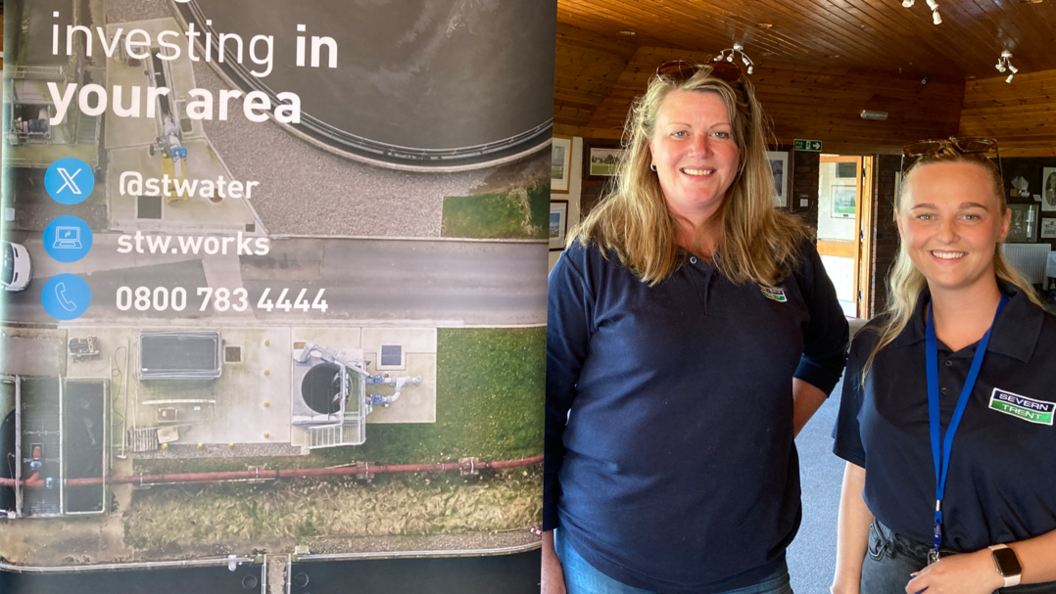
- Published19 July 2024
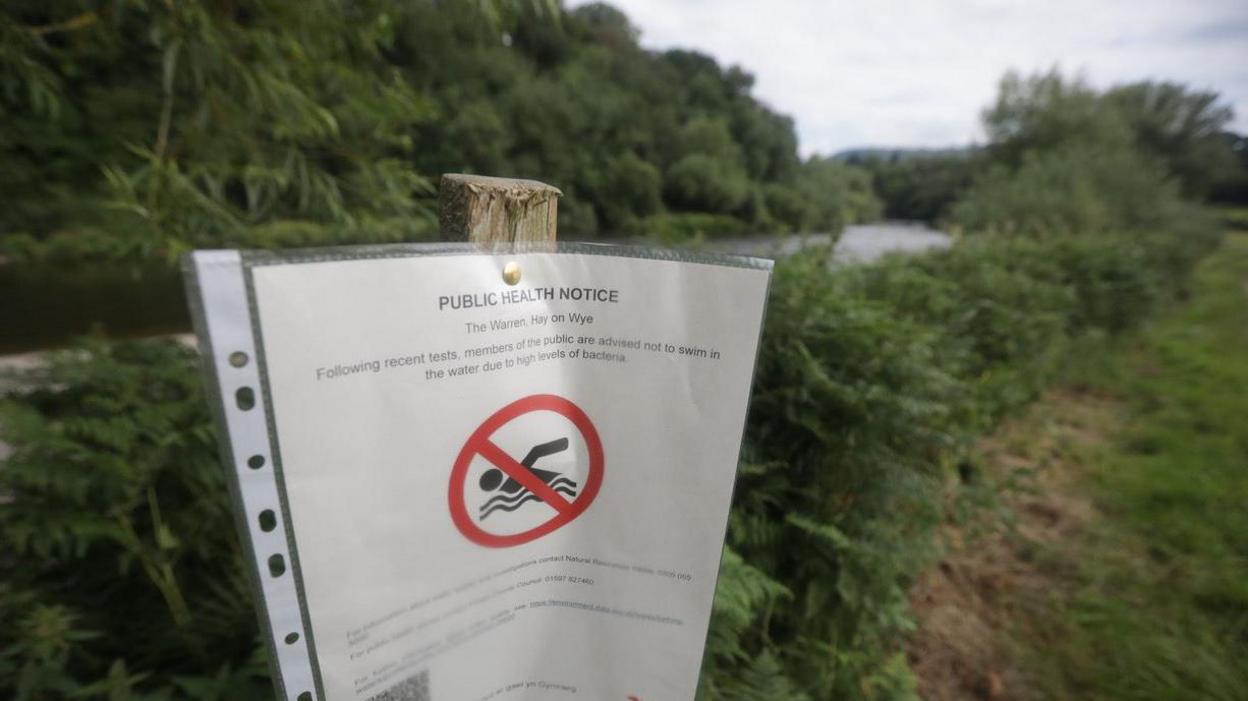
- Published27 February 2024

